- Home
- Thomas H. Cook
Mortal Memory Page 13
Mortal Memory Read online
Page 13
“No,” I said. “Even now, knowing what we’ve learned, I still don’t remember seeing any great resentment toward Jamie on my father’s part.”
“But they didn’t get along, did they?”
“No, they didn’t.” I thought a moment, then added, “But Jamie was not a lovable person, and he was always after Laura, always belittling her. And since my father loved Laura so much, I’m sure that Jamie’s behavior made it hard for my father to reach out to him.” I glanced toward the window, fixed my eyes on the dark lake beyond it, the wild currents I imagined to be swirling just beneath its black, unmoving surface. “It was getting all tangled up,” I said quietly.
“What was?”
“Us. All of us. We were getting all tangled up in things.”
For a moment, I saw my father as I’d often seen him, standing alone by the fence, smoking. There were times when I’d awakened near dawn, gone to the bathroom down the hall, then returned to bed. As I’d crawled back beneath the covers, I’d sometimes glimpsed him there, a solitary figure, standing in the smoky gray of early morning light, very still and deep in thought, as if he were trying to find a way out.
“Maybe that’s what he couldn’t bear,” I said.
“What were you getting tangled up in?” Rebecca asked.
The answer came to me without hesitation. “In each other,” I said. “All knotted up in each other.” I considered my answer longer, then added, “And in love, or faking it, anyway.”
“Faking love?”
“Yes. Pretending to love, when we really didn’t. That’s the hardest thing in life. Imagine doing it for years.” I saw my father by the fence again, caught in his arctic solitude. “The way my father did.”
Rebecca said nothing, but I could see a growing intensity in her eyes, as if I had alerted her to something.
“The men you’re studying, they were all doing that, weren’t they?” I asked. “They were all faking love.”
Rebecca responded with a question of her own. “If that was true, that your father was faking love, when did that be gin?”
“I don’t know for sure,” I admitted. “But I knew who he loved the least.”
So did Rebecca, and to demonstrate it, she drew another picture from her stack. It showed Jamie’s body sprawled across the floor, his head like an exploded melon, scattered in bits and pieces across the floor and wall.
“Poor Jamie,” I said softly. “He had no idea what was coming toward him.”
I remembered all the times my father had gone out and shot baskets with my brother, how often even that had ended in some kind of brawl, ended with Jamie stomping up to his room, slamming the door behind him. At those times, my father had often lingered beneath the net, the ball bouncing up and down on the cement drive, rhythmic as a heartbeat, while he stared vacantly toward the backyard. I could see the look on his face, an expression of helplessness and bafflement, as if he were lost in a terrible bramble, pricked and bleeding, with no way out.
“My father was confused,” I told Rebecca. “Maybe, in the end, he just wanted to get out of that confusion.” I looked up at her emphatically. “Things were heating up in our house,” I told her. “Tension. Hatred. Maybe he couldn’t find any other way to clear the air.” I considered it a moment. “So he just blasted his way out.”
“A sudden explosion, is that what you’re saying?” Rebecca asked. That your father just blew up one afternoon?”
I nodded.
Rebecca said nothing.
“Maybe Jamie was the focal point of that confusion,” I added after a time, “the center of the storm, you might say, but not the whole thing.”
“Did you ever see them talking?” Rebecca asked. “Jamie and your father?”
I shook my head. “No.”
“So they weren’t faking love anymore?”
“No, they’d gone beyond that point, I think,” I said.
It struck me that perhaps this was the line that my father, and all these men, had finally crossed, the one that divided genuine from counterfeit devotion. Somewhere, they had decided that they would no longer live behind their own paternal mask, that the long masquerade was over.
My eyes drew over to the picture of my father on his wedding day, the luminous smile that adorned his face. “Maybe that’s where the fakery began,” I said as I tapped the photograph softly, “from right here, from the very first day.”
Rebecca watched me silently.
“So that his whole family life was a lie,” I added quietly, in a voice that was even, controlled.
In a rush of images, I saw all the postcard moments of our family life, the holidays spent together, the bloated turkey on Thanksgiving, the lighted tree at Christmastime. I saw all our little celebrations, saw my father as he’d stood beside the blazing candles of countless birthday cakes. Each in turn, I watched him lift us into the uncluttered air, Jamie when he turned five, Laura the day she won the fourth-grade spelling bee, me on the day I first rode my bike without training wheels.
“All a lie,” I repeated softly, my lips hardly parting with the words. “Can that be possible?”
Rebecca’s eyes fell toward the picture of my brother in his ruin, a gesture that gave me the only answer I required at the time.
NINE
A WEEK PASSED before we met again. As always, it began with a phone call to my office, and it ended with the two of us seated in the front room of her cottage by the lake.
From the beginning, it was clear that during the intervening days, Rebecca had thought a great deal about our last conversation. She began with a reference to it.
“We were talking about faking love,” she said, as she took a seat opposite me. “You were saying that your father might have faked it from the beginning.”
I nodded.
“What about his love for Laura?” Rebecca asked. “Was he faking that, too?”
I shook my head determinedly. “No. Absolutely not.”
Rebecca took a picture from her briefcase and handed it to me. It showed Laura as she lay on her back, her chest blown open, her soiled feet pressed toward the camera. I gave the picture back to her.
“I don’t care what that shows,” I told her. “I saw his face when he was with her. She relieved him. She gave him the only happiness he may have had in our family.”
I could tell Rebecca remained doubtful.
“I know that my father loved Laura,” I repeated, almost wistfully. “Because I loved her too. Especially toward the end. Especially that last year when it became …” I hesitated to say it, but found that I couldn’t keep it back. “… romantic.” I shrugged. “Or at least that’s the way it felt.”
Laura was sixteen that year, and so beautiful that there were times when I’d catch her in my eye, and simply stop, dead still, and watch until she passed from view. So beautiful that I’d begun to dream about her. They weren’t the sweaty, lustful fantasies of teenage boys, but the atmosphere was always luscious nonetheless, a sensual world of glades and humid leaves, warm mists and jungle fragrances.
In dreams, Laura came to me in such places. Of course, it was never really Laura, but only a presence I recognized as her, a smell, a taste, but never the person that she really was, the teenage girl who ate dinner across the table from me, and slept in the room next door. Still, it was a powerful presence, and after each dream, I was left with the odd sensation of her actually having passed through me, like a wind through a cloud, leaving me in a strangely suspended state of excitement and delight. The following morning, while she ate her eggs obliviously across the table, I would smile inwardly, remembering my dream, and with the strange sense that I’d cunningly stolen something from her during the night, then triumphantly slinked away.
“I was in love with my sister,” I said. “If we’d been allowed to grow up together, I’m sure I would have found another romantic object.” I shook my head. “But she died at the height of her power over me, and so, I had all this love left over, like money I couldn’t spend
.”
“You couldn’t spend it with your wife?”
“It’s not the same.”
I half expected Rebecca to lean toward me and begin a wholly different inquiry, but she didn’t. Instead, she looked at me very shrewdly, as if taking some part of me in for the first time. Then she said, “I know.”
For a moment, we stared at each other softly. During that brief time, I felt an undeniable connection to her, a sense of having shared the same dark space. But it lasted only an instant, for almost immediately, Rebecca shifted in her seat, as if to break free of some invisible net.
“How about Laura?” she said. “Did she have a ‘romantic object’ in her life?”
I suppose it was not until that moment that I fully realized just how much I’d buried since the murders, how much I’d repressed.
“Yes, she did,” I said. “A boy named Teddy Lawford.”
Rebecca drew a small pad from the table beside her chair. “Was he from Somerset?”
“No. They met on Cape Cod. My father had rented a cottage there for the last week in August 1959.” The nearness of that day in November struck me. “It was just three months before the murders.”
Rebecca’s eyes tensed slightly, but she said nothing. Instead, she merely allowed me to continue, her pen still poised above the white paper which bore nothing but Teddy Lawford’s name.
“Teddy was seventeen,” I began.
As I spoke, I could see him quite clearly in my mind, tall and lanky, with light brown hair. He had grayish eyes that seemed to change depending on the light, something Laura had later commented on. His amiable, divorced father was a large, beer-barrel of a man who’d spent his life selling auto parts in Boston. He’d rented the cottage next to ours for the summer, and Teddy had watched a series of families move in and out of it over the preceding weeks, some staying no longer than a few days before they were replaced by another. But we had been the first, I later heard Mr. Lawford say, who’d shown up with a lovely girl nearly his son’s age.
“I think Teddy’s father was anxious for him to meet someone,” I said.
Rebecca looked at me. “You mean a girl his son could have a sexual experience with?”
“Yes, probably,” I answered. “He must have seen Laura at some point, although I don’t know exactly when that might have been.”
Perhaps from behind the tattered paper shades of his own cottage, perhaps from the screened porch that looked out over the sea. In any event, Mr. Lawford had no doubt glimpsed her, had let his eyes settle upon her body as she moved along the side of the house, or strolled through the tall green sea grass to the beach below, all the time brokenly aware, as he must have been, that she was well beyond him, that he was too old and bald and fat to inspire anything but repulsion in such a beautiful young girl, but that she might make a suitable offering for his son.
“Mr. Lawford invited us over to his cottage the second night we were on the Cape,” I said. “My mother hadn’t really wanted to go. Jamie, either. But both of them had finally come along with the rest of us.”
It was early evening, and a gorgeous red sun was lowering on the horizon. I’d never seen a sunset on the sea, or even the kind of deep blue light that descended upon us that evening. It was warm, and Laura was dressed in a pair of white shorts and a dark green blouse, its ends knotted at the front. I remember that Teddy came to attention as she walked into the backyard, his dark eyes clinging to her like talons.
“Teddy fell for my sister at first sight,” I told Rebecca. “They hadn’t even spoken, but he was crazy about her.”
“So it wasn’t exactly love,” Rebecca said.
I shook my head. “Love? No, it didn’t have time to be love.”
But it was very powerful nonetheless, and it grew unabatedly during the entire evening, as Laura and Teddy inched their way into a different universe. The contrast between them and the rest of us must have been amazing. Jamie sat morosely by himself, dully watching the sea. My father and Mr. Lawford talked idly and passionlessly of business matters, my mother listening to them silently, her hands folded in her lap. As for me, I scuffled with Mr. Lawford’s cocker spaniel, both of us rolling mindlessly across the sandy lawn.
And yet, even as I rolled around that evening, I could sense the emergence of a new state of being, a world that had suddenly sprung into existence, and which floated in the air between Teddy Lawford and my sister. I didn’t know what it was, but only that it was something that had been mysteriously created, and that its movements were infinitely fast.
“It wasn’t love,” I told Rebecca once again. “But once you’d felt it, you wouldn’t want to live without it.”
Rebecca lifted her face slightly. “It was romance,” she said firmly.
“Well, whatever it was, Teddy was in the full grip of it. He came over to our house the very next morning.”
He was dressed in a pair of cutoff blue jeans and a white T-shirt, the sleeves rolled up above his shoulders. I saw him lope across the yard, pause a moment at the little stone walkway that led to our house, then bolt forward, as if, in those few hesitant moments, he’d thought it all over and decided the issue once and for all.
Though it was still early, Laura had been awake for a long time. I’d glimpsed her sitting alone on the screen porch, then later strolling absently in the backyard, making odd, aimless turns, her long hair blowing in the early morning breeze. Despite the chill, she’d gone into the yard wearing nothing but the bottom of her bathing suit beneath a loose-fitting blouse, purposely leaving behind her thin blue windbreaker, the one she’d tightly wrapped around herself while she’d remained on the porch.
“Laura had gone out to attract Teddy,” I told Rebecca. “You might say, to display herself. She was very beautiful that summer, and I’m sure Teddy was completely overwhelmed by that.”
And so, that morning I watched as Teddy bounded down the walkway toward our cottage, not even able to control his stride. I was at the window, and it was only a few feet from there to the door, but Laura was at the door even before I could get to it, answering his knock instantly. A wave of white light swept over her when she opened it, and for a moment, as I watched, she seemed encased in its radiance. She stood quite still, talking to him, her hands toying nervously with the loose ends of her blouse. I can still remember the words that passed between them, so ordinary they seemed to burst in the heated air:
“Oh, hi, Teddy.”
“Hi, Laura.”
“Have you already eaten?”
“No, not yet.”
“There’s a little diner down the road. It’s not so great, but I go there for breakfast. You want to come with me?”
“Well, my father’s still asleep, you know?”
I had come up quite close to them by then, walking very slowly from the window to the door, listening intently as I moved toward them.
Laura looked at me, and I noticed that, despite the chill, small beads of sweat had formed a moist line across her upper lip.
In an instant, she was gone, the two of them disappearing behind a curve in the road. She hadn’t asked my father’s permission. She hadn’t said so much as a “see you later, Stevie” to me. It was as if a mighty wind had picked her up and blown her out the door.
“She was completely swept away,” I told Rebecca. “I couldn’t imagine what was going on in her. I couldn’t believe that she’d just left without saying anything to my father.”
He woke up an hour later, fully alert, the way he always did, as if, each morning, he returned to himself in a sudden, startling realization. He was dressed in a pair of blue trousers and a checked shirt, and he barely offered a passing wave as he headed for the kitchen. I heard him making a pot of coffee, then, after it was made, I saw him walk out onto the back porch and stare out across the field of high, green sea grass that stretched almost to the beach. The morning light was even brighter by then, and it framed him eerily as he stood, his back to me, peering out toward the bay, the black mug of coffee ris
ing and falling rhythmically before he finally spun around, as if alerted by some sound, and looked at me:
“Where’s Laura?” he asked.
“Laura?” I repeated hesitantly, stalling for time, but remembering the look she’d given to me as she’d left with Teddy, a look that had unmistakably commanded me to lie. “I don’t know, Dad,” I answered. “I haven’t seen her.”
He nodded slowly and lowered himself into one of the rusty metal chairs on the back porch. It was only then that the oddity of his initial question struck me. How had he known that Laura was not in the house, not sleeping in her bed like his wife was? I know that the question rose in my mind that morning, but only in a child’s mind, quick, glancing, devoid of further investigation. It was not until I’d related the whole story of that morning to Rebecca that the answer actually occurred to me.
“He had expected to find her waiting for him on the porch,” I told her. “And when he walked out onto the back porch and saw she wasn’t there, he knew something was wrong.”
“What did he do?”
“He had another cup of coffee.”
And another and another, while the sun rose steadily and my mother slept mindlessly, and I wandered in the backyard, glancing apprehensively toward him from time to time. Something had gone wrong, and I knew it; some mysterious and confusing element had entered into our lives. I could see it in my father’s face. For even though his features remained very still, I could sense that wheels were spinning wildly behind them.
My mother got up at around ten that morning, but she didn’t join my father on the back porch. Instead, she mechanically made breakfast for herself, the usual boiled egg and toast, then walked out into the living room and ate it absently, as if it were merely tasteless fodder, fit for nothing but the maintenance of life.
I went out to play in the backyard. Mr. Lawford’s spaniel spotted me and ran over for another round of tussling in the grass, and this occupied me fully for quite some time. The strange dread I’d felt vanished in the frolic, and so it was not until I saw my father come to his feet that I even noticed that he still remained on the back porch.

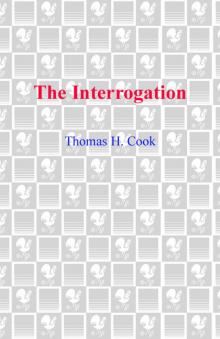 The Interrogation
The Interrogation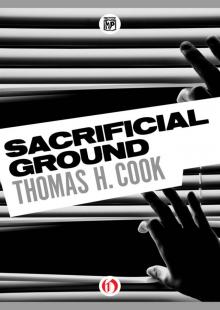 Sacrificial Ground
Sacrificial Ground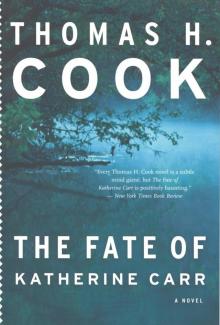 The Fate of Katherine Carr
The Fate of Katherine Carr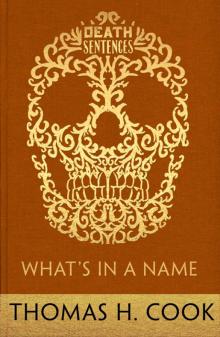 What's In A Name
What's In A Name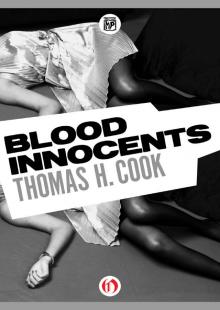 Blood Innocents
Blood Innocents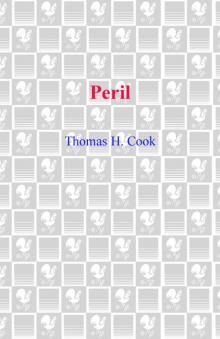 Peril
Peril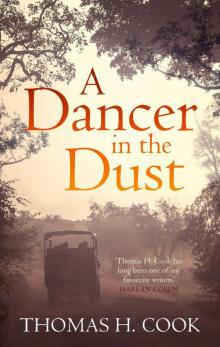 A Dancer In the Dust
A Dancer In the Dust Breakheart Hill
Breakheart Hill The Chatham School Affair
The Chatham School Affair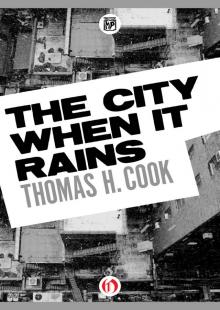 The City When It Rains
The City When It Rains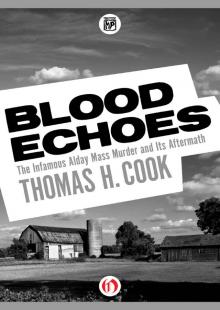 Blood Echoes
Blood Echoes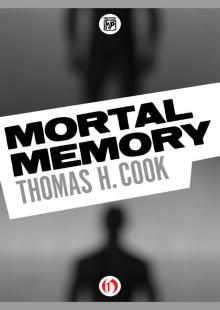 Mortal Memory
Mortal Memory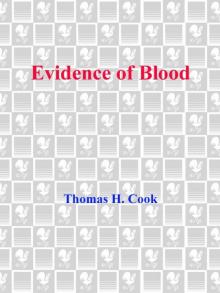 Evidence of Blood
Evidence of Blood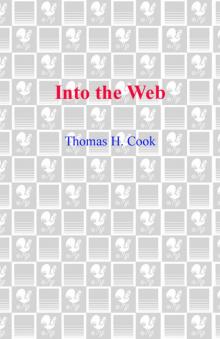 Into the Web
Into the Web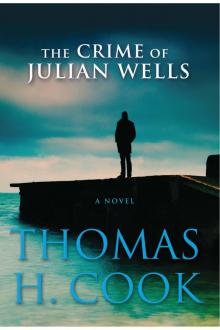 The Crime of Julian Wells
The Crime of Julian Wells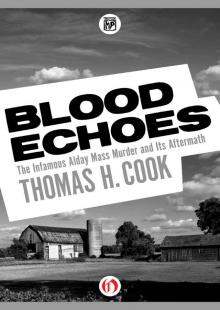 Blood Echoes: The Infamous Alday Mass Murder and Its Aftermath
Blood Echoes: The Infamous Alday Mass Murder and Its Aftermath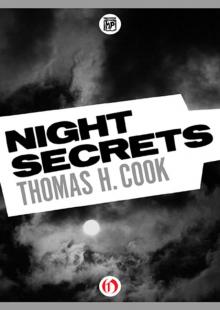 Night Secrets
Night Secrets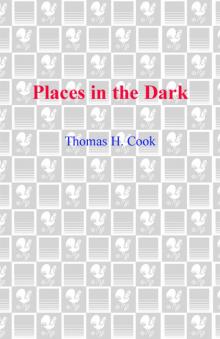 Places in the Dark
Places in the Dark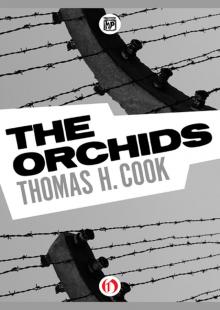 The Orchids
The Orchids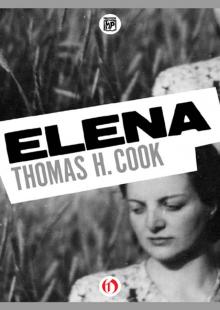 Elena
Elena Streets of Fire
Streets of Fire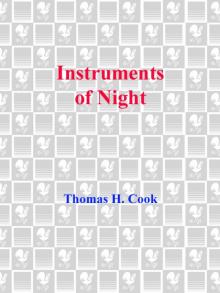 Instruments of Night
Instruments of Night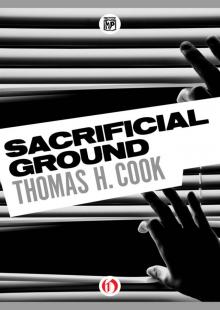 Sacrificial Ground fc-1
Sacrificial Ground fc-1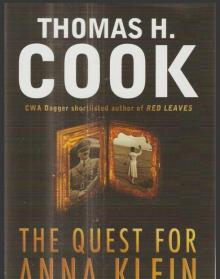 The Quest for Anna Klein
The Quest for Anna Klein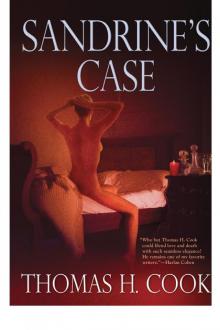 Sandrine's Case
Sandrine's Case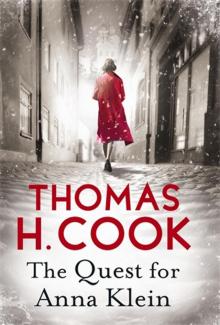 Quest for Anna Klein, The
Quest for Anna Klein, The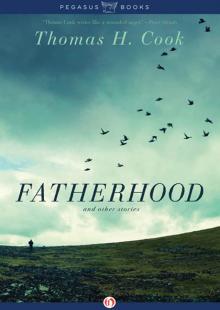 Fatherhood
Fatherhood Flesh and Blood
Flesh and Blood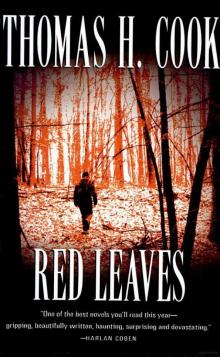 Red Leaves
Red Leaves